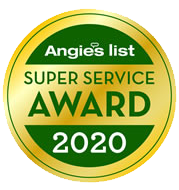Integrity: Do you recognize it in others? Do You Have It?
“To give real service you must add something which cannot be bought or measured with money, and that is sincerity and integrity.” Donald A. Adams
People often talk about having integrity, but what does that really mean?
Integrity is defined as: being honest and showing a consistent and uncompromising adherence to strong moral and ethical principles and values.
Many people claim to have integrity, but how many actually walk the talk? How many are aware of their actions and business dealings, and can actually say that they illustrate integrity in what they do?
There’s a 78-year old man living in my community who, to me, epitomizes integrity. He’s got a knack for landscaping and offered to do the grading around my property, which meant leveling the ground in such a manner to avoid storm water from flowing onto the property. I’ve known him for some time. I knew if he said he was going to do the job, that he would do it. I had complete trust in him. I offered to pay him three times before I finally got him to take some money for his efforts. In the end he did a great job. Why? Not just because he knew what he was doing, but because he took great pride in his work – for him, money is not his sole motivation for doing a good job – he wants to build a relationship of trust with his clients, through an integrative action. Payment then shows appreciation and acknowledgment of a job well done.
How do we build integrity within ourselves?
Listening, understanding, and showing compassion for others starts the process. Putting yourself in someone else’s shoes means you are willing to see a problem or issue from their vantage point. By understand what a client, customer, or even your neighbor wants or needs, you can be honest in your determination of whether or not you can be helpful. Honesty is so important. For example, at Kelemer Brothers we know what we do and what we don’t do. We do windows, doors, siding and awnings. If someone asks us if we could work on their chimney for an extra fee, we will say no. We will not take on a job we are ill-prepared to handle even if there is more money to be earned. Our success is based largely on people trusting us and relying on us to do the right thing.
Speaking of doing the right thing, there’s a story of a businessman who paid someone to coach him for an hour on how to market his company. The businessman followed the advice of the coach, but saw no positive results. At the end of the year, the coach emailed holiday wishes to his clients. The businessman responded politely by wishing him a good holiday season, and then added, unfortunately, the plans you taught me were unsuccessful. He never thought he’d hear from the coach again. The next day, he got a phone call from the coach, telling him, “I can’t accept your response. I feel bad knowing that you paid me and I wasn’t helpful – I’ll make it up to you with a free hour of coaching and we’ll work this out.” This time the coach’s words of wisdom worked and the businessman saw results. The coach never had to respond, but he did. Why? Because he couldn’t leave the job unfinished. He had integrity.
You will be tested.
No, I’m not providing a test. Life will test you many times. You will be asked to take the easy way out, lie for someone else, take part in questionable activities, engage in deception, break promises, and make business dealings that are unfair to an uninformed customer. How you react and how you respond will answer the question: Do you have integrity?
Businessman and philanthropist W. Clement Stone said: “Have the courage to say no. Have the courage to face the truth. Do the right thing because it is right. These are the magic keys to living your life with integrity.”
Best regards,
Josef Kelemer
Kelemer Brothers














